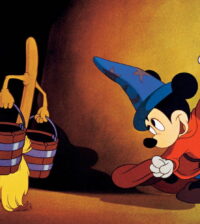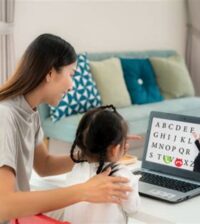- Belgium comes to Yamashita Park
- Residential Villa in Phuket Entices Remote Workers With Long-Stay Rates
- Rare pieces of French glass art at the Mirai Museum of Art
- Feast on fresh fish and seafood at the 2024 ‘Sakana’ Festival
- Would you like to ride in a Louis Vuitton gondola lift?
- Naked Snow Aquarium
- Festive lights at Yomiuriland will get you feeling the holiday vibes
Learning Music the Suzuki Way

Anyone with an interest in children’s education, in general or in musical pedagogy in particular, will have heard about the now world-famous Suzuki Method approach. Its founder Shinichi Suzuki was born in Nagoya in 1898, the son of a violin manufacturer. He taught himself how to play. Years later, he moved to Germany to study violin and it was here that he was first asked to teach a friend’s child. He saw how young children mastered the German language, something he was having difficulty with. Just as young Japanese children master their mother tongue, the highly complex Japanese language, by listening, imitation, and repetition, he believed children could learn music by listening and repeating. It is thus often referred to as the “mother tongue approach”. Suzuki believed that “musical talent” was not innate. It was something that could be developed and nurtured.
His aim was to nurture the whole character of the child, not just assist in mastering an instrument. This idea of developing skill, knowledge and character is often referred to as Talent Education. In Japanese, the term “saino” refers to both talent and ability. There is no clear distinction between the two concepts as there is in English. So, given the right nurturing environment, music can be learned as easily as a mother tongue, if taught with love and dedication.
How Does The Suzuki Method Actually Work?
• Early start: One of the key elements to this approach to music is that children start learning very early. Three is the average age.
• Parental involvement is also essential. In Japan, it is usually the mother who takes charge of all aspects of a child’s education. There must always be a dedicated parent to accompany the child at lessons as well as actively participating in practice sessions at home. Also, the mother should know how to play whatever instrument the child is learning.
• Listening and repetition: The Suzuki Method has a set repertoire and the children should listen to the recordings of the pieces on a daily basis. This helps “internalize” the music. When they start playing a new piece for the first time, they will already have heard it a hundred times and so actually playing it will come much more naturally.
• Concerts & performance: Suzuki Method students will perform, on average, in at least two concerts a year. In this method, performing in front of an audience is meant to focus your attention on your own work. Anyone can play privately in their own home, but up on stage in front of people requires an intense level of concentration.
• Repertoire: In the Suzuki approach, an actual repertoire of real music is taught as opposed to scales and exercises. The pieces developed by Suzuki progress according to technical skills required for each piece. This also means that when a group of Suzuki students gather for a performance, no matter where they come from, they will all have learnt the same pieces.
• Reading music: In this method, children do learn to read music eventually, but it is not until they have mastered the instrument that they are taught to read musical scores. Just as a baby learns to talk first, to speak their mother tongue, before they are taught to read. When using our eyes, Suzuki claimed, the ears were less attentive, so in learning music we should focus on listening first.
• Practice, practice, practice: Practice makes perfect! A universally accepted truth, perhaps, but especially true when learning a musical instrument. It is said that one day of skipped practice requires three days to compensate.
Perhaps this is how we could gauge how past-pupils actually feel about the Suzuki Method. Would you send your own child to a Suzuki Method school to learn music? I did.
Suzuki Method In Tokyo
I have recently enrolled my girls in the Naka-meguro branch of Suzuki’s piano school. They are four years old and would play piano all day long if I let them. Their enthusiasm for this newfound “toy” is really quite stunning and the entire family is being treated to variations of Twinkle, Twinkle at six- thirty in the morning. So far, I haven’t had to remind them to practice. On the contrary, I find myself saying, “Why don’t we give the piano a little break now?” (Does this make me the antithesis of the good Japanese Suzuki-Method mother?!)
They have a wonderful teacher, Inoue Sensei, who has taught piano via the Suzuki method in Tokyo for the past thirty years. She speaks passionately about the Suzuki method, saying it is “in her blood”. What she wants is for the students to incorporate music into their lives, for it to become “as important to them as the air they breathe”. The most rewarding part of being a music teacher is to see the kids looking so happy as they play.
One Last Note
Philosophers have argued the question of nurture versus nature for centuries, of what is innate and what is learned. Can we actually teach a child to be a brilliant musician? Suzuki wanted children to develop beautiful hearts, not just to play beautiful music. The suggestion being that the sound that comes from the strings of a violin shows the kind of heart you have. Is this simply a beautiful and romantic way to describe the music a child is capable of playing with practice? Or is it a huge amount of pressure to put on a kid with a fiddle? I can’t decide. What I do know is that so far my girls are loving their “musical education”. It is already a huge part of their lives (and everyone else’s in the house for that matter!). They look forward to the class and to showing their sensei how they’ve improved. Anatole France said that “nine-tenths of education is encouragement” and so I will continue to applaud my girls’ rhythmic variations of Twinkle, Twinkle, I will give them hugs when the left hand and right hand actually move in sync, I will give them high fives when they remember the names of the notes, and most of all, I will wait with bated breath for them to move on to the next tune in the book!
For more details about the Suzuki Method in Tokyo, visit:
www.iori.org/nakameguro/ or www.suzukimethod.or.jp
New International School in Tokyo offers violin programs to its students from age 6. www.newis.ed.jp

















